Blockchain
Deutsche Bank Blockchain Project Guardian
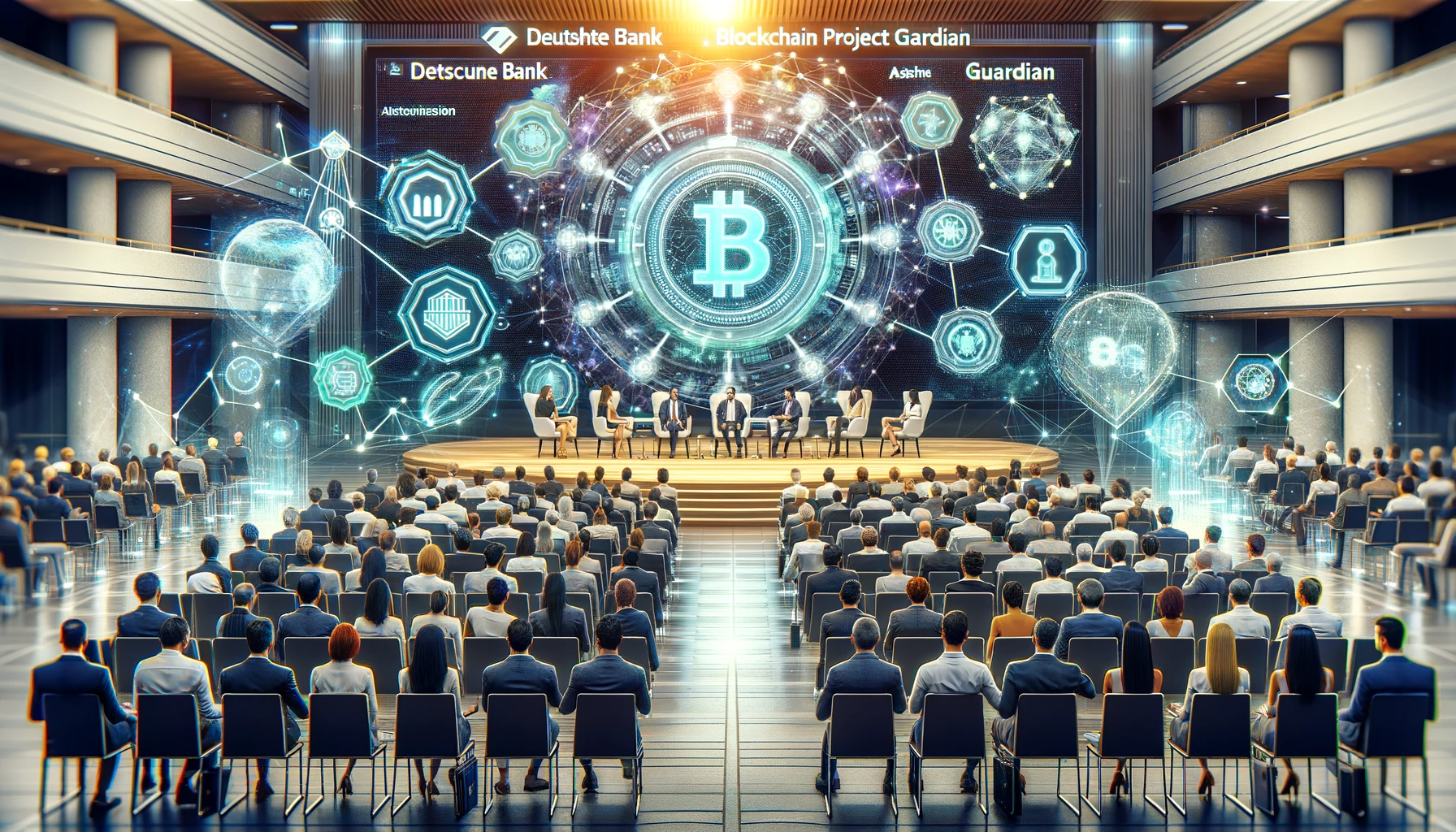
Deutsche Bank Blockchain Project Guardian is a groundbreaking initiative spearheaded by the Monetary Authority of Singapore (MAS). This project is set to explore the expansive potential of asset tokenization and decentralized finance (DeFi) within the financial sector.
This project is part of a larger effort by MAS to blend traditional financial practices with innovative blockchain technologies, aiming to enhance the efficiency, transparency, and security of financial transactions across various asset classes.
While MAS strongly discourages and seeks to restrict speculation in cryptocurrencies, we see much potential for value creation and efficiency gains in the digital asset ecosystem. This is why we are actively collaborating with the industry to foster a responsible and innovative digital asset ecosystem.
As we enter this new phase of Project Guardian, we look forward to collaborating with fellow policymakers and industry practitioners to jointly develop effective frameworks to guide the sound development of future financial networks.
Leong Sing Chiong, Deputy Managing Director (Markets and Development), MAS
Project Guardian, first introduced by MAS, serves as a collaborative platform that engages multiple top-tier global financial institutions, regulatory authorities, and technology companies.
The initiative focuses on experimenting with and understanding blockchain’s applicability in areas like asset management, fixed income, and foreign exchange.
For Deutsche Bank, this participation signifies a crucial step towards embracing digital transformation and preparing for future financial ecosystems dominated by digital assets and technologies.
Deutsche Bank’s involvement highlights its commitment to innovation and its strategic approach to leveraging new technologies to stay competitive in the rapidly evolving financial landscape.
By participating in Project Guardian, Deutsche Bank aims to explore the practical aspects of blockchain in reducing complexities in asset management, improving transaction speed, and lowering costs, which could revolutionize traditional banking operations and client services.
The bank’s collaboration in this project not only allows it to pilot cutting-edge technologies in a regulatory-compliant environment but also positions it as a forward-thinking leader eager to tap into the emerging market of tokenized assets.
The involvement is expected to yield insights into the scalability and robustness of blockchain applications in real-world financial settings, providing Deutsche Bank with a competitive edge in digital finance.
Deutsche Bank Blockchain Project Guardian Strategic Integration

Deutsche Bank is among the key financial institutions collaborating under the MAS-led Project Guardian, which aims to test the viability and impact of asset tokenization in modernizing financial practices.
This involvement is not merely participatory; Deutsche Bank is actively engaging in pilot projects that test tokenization across several financial sectors, including asset management, fixed income, and foreign exchange, which are crucial to understanding the practical applications and potential disruptions blockchain technology may bring to the financial industry.
Contributing to Project Guardian will bolster our efforts to help shape the new frontier of asset servicing, and strongly position us to contribute to industry progress, and not only anticipate our clients’ needs but exceed their expectations.
Strategic Importance for Deutsche Bank
The strategic importance of Deutsche Bank’s involvement in Project Guardian lies in its potential to redefine financial asset management and transaction processes.
By integrating blockchain technology, Deutsche Bank aims to achieve greater transaction efficiency, enhanced transparency, and improved security measures.
The project allows the bank to explore these technologies in a sandbox environment, mitigating risks while assessing the feasibility of wider implementation across its global operations.
Asset tokenization, as explored in Project Guardian, could significantly lower the barriers to entry for various investment opportunities, allowing for smaller investment denominations and broader investor participation.
The democratization of access to high-value asset markets, which have historically been inaccessible due to their high entry costs and intricate management demands, may result from this development, potentially broadening the clientele of Deutsche Bank.
Expected Benefits and Challenges to Deutsche Bank
The expected benefits for Deutsche Bank include operational efficiencies through streamlined processes and reduced reliance on intermediaries, which can lead to cost savings and faster transaction times.
Moreover, tokenization could enhance liquidity in traditionally illiquid asset classes, a significant advantage in asset and wealth management sectors.
However, the integration of blockchain technology also presents challenges, primarily regulatory and technical. Navigating the complex regulatory landscape, ensuring compliance with international financial regulations, and managing the technical aspects of blockchain integration are critical hurdles that Deutsche Bank will need to overcome.
As Project Guardian progresses, Deutsche Bank is poised to play a pivotal role in shaping the regulatory frameworks and industry standards for blockchain in financial services, contributing not only to its strategic objectives but also to the broader economic ecosystem’s evolution toward digital assets.
Deutsche Bank’s Strategic Journey in Blockchain and Asset Tokenization

Deutsche Bank’s involvement in Project Guardian marks a significant milestone in its digital transformation journey. By actively participating in this pioneering initiative led by the Monetary Authority of Singapore (MAS), Deutsche Bank is positioning itself at the forefront of the financial industry’s shift towards blockchain technology and asset tokenization.
This strategic move is indicative of the bank’s commitment to innovation and its vision to redefine the landscape of financial services.
Key Takeaways:
- Leadership in Innovation: Deutsche Bank’s participation in Project Guardian not only highlights its role as an innovator but also as a leader in shaping the future of financial technologies. The project allows Deutsche Bank to explore and potentially set new standards for the use of blockchain in financial services, ensuring it remains competitive in a rapidly evolving digital economy.
- Enhanced Client Services and Operational Efficiencies: Through blockchain and tokenization, Deutsche Bank can offer its clients more diverse and accessible investment opportunities while also achieving greater operational efficiency and security in its transactions. These advancements could lead to improved customer satisfaction and loyalty, which are crucial in the competitive banking sector.
- Navigating Challenges: The journey has its challenges, including regulatory hurdles, technical integration issues, and the need for substantial cultural shifts within the organization. How Deutsche Bank addresses these challenges will be critical to its success and could provide valuable insights into the resilience and adaptability of large financial institutions embracing new technologies.
Challenges Facing Deutsche Bank
- Regulatory Compliance and Uncertainty: As blockchain and tokenization are relatively new technologies in the financial sector, regulatory frameworks are still developing. Deutsche Bank must navigate these evolving regulations and ensure compliance across different jurisdictions, which can be complex and resource-intensive.
- Technical Integration and Security Concerns: Integrating blockchain technology with existing financial systems poses significant technical challenges. Ensuring the security and robustness of these systems against cyber threats is crucial, as blockchain networks can be susceptible to various security risks.
- Market and Technological Risks: The adoption of blockchain and tokenization involves exposure to market risks related to the volatility of digital assets and technological risks associated with the deployment of new technologies. Managing these risks effectively is essential to prevent potential financial losses and reputational damage.
- Cultural and Organizational Change: Implementing blockchain technology requires significant changes in organizational processes and culture. Deutsche Bank will need to invest in training and development to prepare its workforce for new operational paradigms associated with digital assets and tokenization.
Future Outlook:
As Project Guardian continues to evolve, Deutsche Bank’s ongoing involvement will likely influence not only its operations but also the broader financial industry’s approach to digital assets and blockchain technology. The insights gained from this initiative could lead to more robust, efficient, and inclusive financial systems globally.
Deutsche Bank’s strategic investment in blockchain technology through Project Guardian reflects its proactive approach to adopting next-generation technologies.
This involvement is set to not only transform its internal operations but also to potentially redefine global financial practices, making it a key player in the future of digital finance.
FAQs
1. What is Project Guardian?
Project Guardian is an initiative led by the Monetary Authority of Singapore (MAS) that explores the potential of blockchain technology and asset tokenization in the financial industry. It involves collaboration with global financial institutions to pilot innovative applications in areas such as asset management, fixed income, and foreign exchange.
2. Why is Deutsche Bank participating in Project Guardian?
Deutsche Bank is participating in Project Guardian to leverage blockchain technology to enhance the efficiency, transparency, and security of financial transactions. This involvement aligns with its strategic goals of digital transformation and innovation in financial services.
3. What benefits does blockchain technology offer to Deutsche Bank?
Blockchain technology offers Deutsche Bank multiple benefits, including improved operational efficiencies, enhanced liquidity for illiquid assets, expanded market access, and the ability to provide innovative financial products to a broader range of investors.
4. What are the challenges Deutsche Bank faces with blockchain adoption?
Deutsche Bank faces several challenges with blockchain adoption, including regulatory compliance, technical integration of blockchain with existing systems, security concerns, and the need for organizational adaptation to new technologies.
5. How could asset tokenization change the financial industry?
Asset tokenization could revolutionize the financial industry by making investments more accessible, increasing the liquidity of traditionally illiquid assets, and simplifying complex financial operations through automation and transparency.
6. What is the future outlook for Deutsche Bank’s blockchain initiatives?
The future outlook for Deutsche Bank’s blockchain initiatives is promising, with the potential to influence how financial services are delivered and consumed significantly. Continued participation in projects like Guardian could position Deutsche Bank as a leader in the adoption of digital finance technologies.
Blockchain
BlockDAG’s $331.5M Presale Steals The Show As TRON Transactions Jump & Dogecoin Eyes Breakout

Technical patterns often reveal more than short-term excitement. TRON has seen its daily transactions jump 80%, showing strong network activity. Dogecoin, on the other hand, is forming a descending triangle pattern that hints at a possible sharp move ahead. Both coins are drawing attention, one for higher usage, the other for possible price action.
But BlockDAG (BDAG) clearly leads with its real-world partnership and forward-thinking presale. With $331.5M raised and over 23.5 billion coins already sold, BlockDAG offers a unique combination of utility and opportunity. The limited-time $0.0016 GLOBAL LAUNCH release price opens the door for greater potential returns. For anyone looking at which crypto to buy today, BlockDAG’s offer stands out with real use and future upside.
TRON Daily Transactions Soar 80% Showing Strength
TRON technical data shows an 80% rise in daily transactions. Activity has grown from about 5 million to nearly 9 million a day since last September. The network’s real use has climbed, and higher fees paid in TRX on-chain point to steady demand beyond short-term moves. However, TRON’s price faces strong resistance at $0.28. Its price has remained between $0.275 and $0.283 where many liquidation points limit upward movement.
The Relative Strength Index is also close to overbought levels, suggesting the chance of a short-term dip unless volume builds to break higher. For TRON to leave the tight range of $0.26 to $0.28, continued buying power will be key. Larger holders adding quietly and increasing social media talk suggest that a breakout could happen if the $0.28 barrier is finally cleared.
Dogecoin Shapes Triangle Pattern Eyes Big Break
Dogecoin is forming a descending triangle pattern where the price keeps bouncing off steady support around $0.1369 while making lower highs. This points to a phase where price action tightens, often before a major move. The repeated tests of support match the classic “1-2-3” pattern often seen before price climbs, showing strong interest from buyers at these levels.
As the pattern narrows, price swings have become smaller, which usually sets up the conditions for a breakout. Many are watching for a push toward $1 if the price can move above the triangle. If momentum holds, the price could go even higher. As price nears the tip of the triangle, the odds of a large move increase, with traders positioning ahead of a possible sharp rise.
BlockDAG Raises $331.5M Presale Selling 23.5B Coins Fast
The Seattle Seawolves have teamed up with BlockDAG to deliver blockchain-driven fan experiences that reach beyond match days. This partnership brings a digital dimension to sports fandom. Fans can collect official digital items like NFTs and tradable digital pieces that mark special moments with the team. This creates a sense of digital ownership in the team’s story.
Through the X1 App, fans can gather memorable moments, earn rewards for engaging with content, and view exclusive videos like behind-the-scenes clips and highlights. This effort builds a stronger bond between the community and the technology shaping future fan experiences.
At the same time, BlockDAG’s presale has surpassed expectations. The project has raised $331.5M so far and sold over 23.5 billion coins. With Batch 29 coins priced at $0.0276, early supporters have already seen a 2,660% return since Batch 1. Thanks to the GLOBAL LAUNCH release, new participants can still access the $0.0016 price for a limited period until August 11. This chance offers clear utility and high potential for returns.
Summing Up!
While Dogecoin watchers focus on chart patterns and TRON followers note stronger network use, BlockDAG is delivering practical results. Its partnership with the Seattle Seawolves brings real value by linking sports fans with digital experiences, while the presale keeps setting new records.
BlockDAG has sold over 23.5 billion coins and provided a 2,660% return since Batch 1. With a special GLOBAL LAUNCH release price of $0.0016 active for a short time, this project offers clear access and potential for growth. For anyone weighing not just hype but real-world use, BlockDAG provides a stronger case for those thinking about which crypto to buy today.
Presale: https://purchase.blockdag.network
Website: https://blockdag.network
Telegram: https://t.me/blockDAGnetworkOfficial
Discord: https://discord.gg/Q7BxghMVyu
Blockchain
BlockDAG’s GLOBAL LAUNCH Release Edge: Why It Outshines BONK and LINK with $0.0016 Presale Price Lock

Price stability is becoming a rare advantage in crypto, especially as traders weigh shifting momentum signals. LINK is currently holding at a technical crossroads with on-chain data showing a cautious tone among major holders. BONK, on the other hand, is seeing a surge in trading volume and buy-sell delta, pointing to short-term interest, but resistance levels could limit its next move.
BlockDAG, by contrast, is drawing attention for locking its presale price at $0.0016 despite batch 29 being priced at $0.0276. This calculated decision gives BlockDAG (BDAG) an edge by offering a consistent entry point as part of its GLOBAL LAUNCH release.
BONK Price Update: Volume Spike Signals Growing Momentum
The latest BONK price update shows a significant shift in market sentiment, with trading volume rising by 98.33% to $160.5 million. Alongside this surge, there’s a notable buy-sell delta of +127 billion tokens, indicating strong accumulation and bullish interest. After bouncing off the $0.000013 support, BONK briefly touched $0.00001480 before stabilizing around $0.00001446, showing that buyers are actively defending recent gains.
Technically, BONK faces a critical resistance near $0.000015. A break above this level could lead to a stronger rally, but failure to hold may cause a retest of lower support levels. Despite slight overbought conditions, the increase in volume and open interest indicates confidence in the upward trend, making BONK a closely watched asset in this phase of its price cycle.
LINK Price Faces Uncertainty as Traders Watch Key Levels
The LINK price forecast remains uncertain as the asset hovers at a crucial crossroads. Data reveals that investor activity is slowing, with whale wallet interactions dropping and fewer LINK tokens being moved off exchanges. This suggests caution among large holders, with potential overhead pressure. Although LINK is currently holding above a short-term support zone, it shows signs of hesitation that could impact short-term momentum.
Traders are closely watching whether LINK breaks above resistance or falls below the $13.5–$13.9 range, as this could signal the next move. The Relative Strength Index (RSI) is in neutral territory, indicating neither buyers nor sellers have clear control. As LINK stalls near these key levels, the price forecast will depend on whether accumulation picks up or a broader pullback occurs.
BlockDAG Locks In $0.0016 Presale Price with GLOBAL LAUNCH Release
BlockDAG has made a strategic move by freezing its presale price at $0.0016 as part of its highly anticipated GLOBAL LAUNCH release. This decision is designed to protect retail buyers from late-stage price increases, ensuring they get the same early pricing as the initial backers. While the official Batch 29 price is $0.0276, this special offer lowers the barrier to entry, giving participants the chance for a higher ROI.
BlockDAG’s presale has already raised over $329 million, with more than 23.5 billion coins sold, making it one of the most discussed presales of 2025. The ROI since Batch 1 has reached 2,660%, and the locked price of $0.0016 further increases the potential for buyers. This structured presale model sets BlockDAG apart, offering a predictable, user-first approach.
Rather than rushing toward unpredictable surges, BlockDAG’s approach prioritizes stability by locking in the presale price. This eliminates the fear of missing out that often comes with rapid price jumps, allowing buyers to invest with confidence. As the GLOBAL LAUNCH release approaches, BlockDAG offers a unique opportunity, attracting attention from those looking for a long-term, secure entry point.
Conclusion
While BONK’s rising volume and LINK’s indecision at key levels show that volatility still dominates short-term trading, BlockDAG is offering a more stable approach. By freezing its presale price at $0.0016, BlockDAG removes the uncertainty that typically accompanies late-stage investments. This stability has caught the attention of investors seeking a clear, reliable path ahead of major launches.
Unlike other projects that react to market shifts, BlockDAG is taking a proactive approach by focusing on structure and timing. As the GLOBAL LAUNCH release nears, BlockDAG is positioning itself not through speculation but by allowing buyers to participate under clear, predictable terms. This makes BlockDAG stand out as a crypto that’s not relying on hype, but offering real, tangible value for those preparing for long-term gains.
Presale: https://purchase.blockdag.network
Website: https://blockdag.network
Telegram: https://t.me/blockDAGnetworkOfficial
Discord: https://discord.gg/Q7BxghMVyu
Blockchain
Russian Defense Manufacturer Eyes Stablecoin Launch on Tron Blockchain
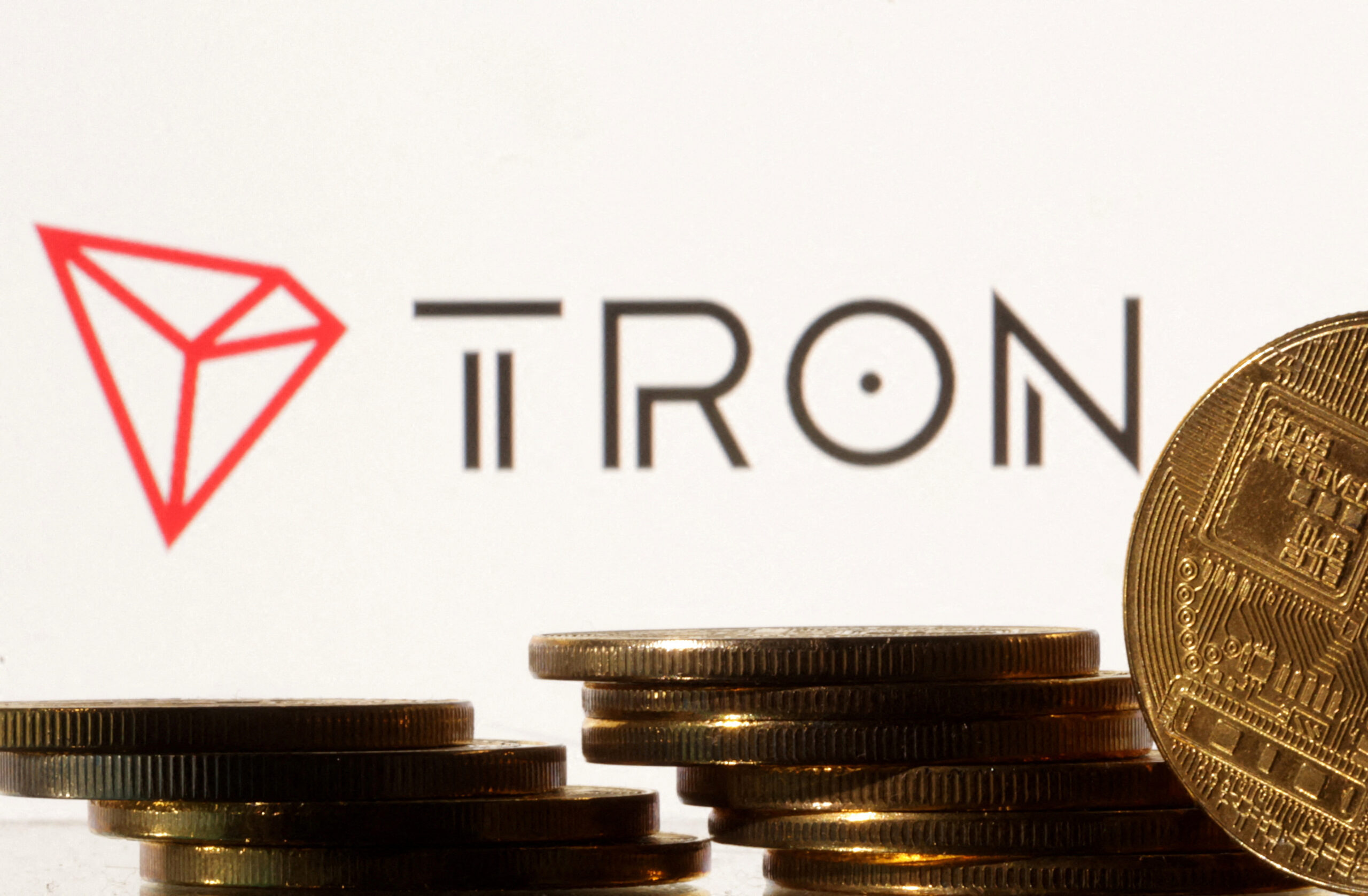
A major Russian arms manufacturer is reportedly developing plans to launch its own stablecoin on the Tron blockchain, signaling a growing interest in decentralized finance (DeFi) solutions within state-linked industries.
According to sources close to the matter, the initiative is being explored as a means to bypass traditional financial systems and mitigate the impact of international sanctions. By leveraging blockchain technology—specifically the Tron network known for its low fees and fast transactions—the company aims to facilitate more efficient cross-border transactions and secure trade settlements.
While the identity of the defense contractor has not been officially disclosed, insiders suggest that the stablecoin project is intended for use in settling international arms deals and procuring critical materials. The move would allow the company to conduct business with foreign partners without relying on SWIFT or other Western-controlled financial infrastructures.
The choice of the Tron blockchain is particularly notable. Tron, founded by Justin Sun, has become a popular network for stablecoins like USDT due to its high throughput and low transaction costs. Its growing global user base makes it an attractive option for entities seeking financial flexibility and speed.
The development comes amid Russia’s broader push to integrate digital assets into its economy. The Russian central bank has already launched pilot programs for a digital ruble, while private and state-linked entities are increasingly exploring crypto-based alternatives to facilitate international trade.
If realized, this stablecoin project could set a precedent for other state-affiliated organizations seeking to harness blockchain technology in the face of geopolitical and economic restrictions.
-

 Crypto3 years ago
Crypto3 years agoCardalonia Aiming To Become The Biggest Metaverse Project On Cardano
-
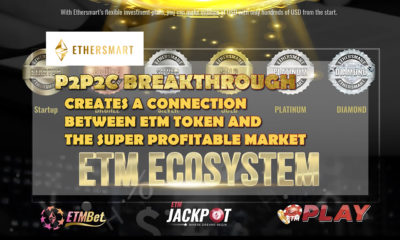
 Press Release5 years ago
Press Release5 years agoP2P2C BREAKTHROUGH CREATES A CONNECTION BETWEEN ETM TOKEN AND THE SUPER PROFITABLE MARKET
-
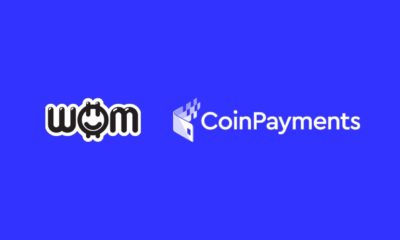
 Blockchain5 years ago
Blockchain5 years agoWOM Protocol partners with CoinPayments, the world’s largest cryptocurrency payments processor
-

 Press Release5 years ago
Press Release5 years agoETHERSMART DEVELOPER’S VISION MADE FINTECH COMPANY BECOME DUBAI’S TOP DIGITAL BANK
-
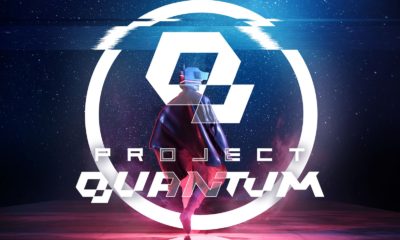
 Press Release4 years ago
Press Release4 years agoProject Quantum – Decentralised AAA Gaming
-
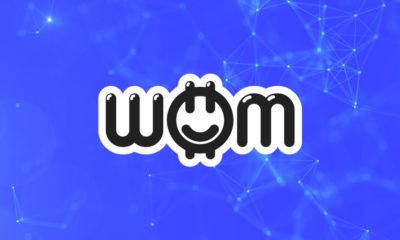
 Blockchain5 years ago
Blockchain5 years agoWOM Protocol Recommended by Premier Crypto Analyst as only full featured project for August
-
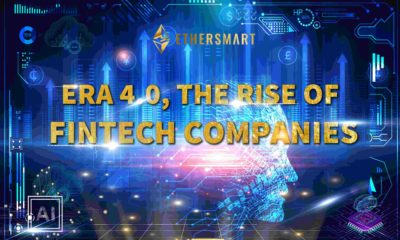
 Press Release5 years ago
Press Release5 years agoETHERSMART DEVELOPER’S VISION MADE FINTECH COMPANY BECOME DUBAI’S TOP DIGITAL BANK
-
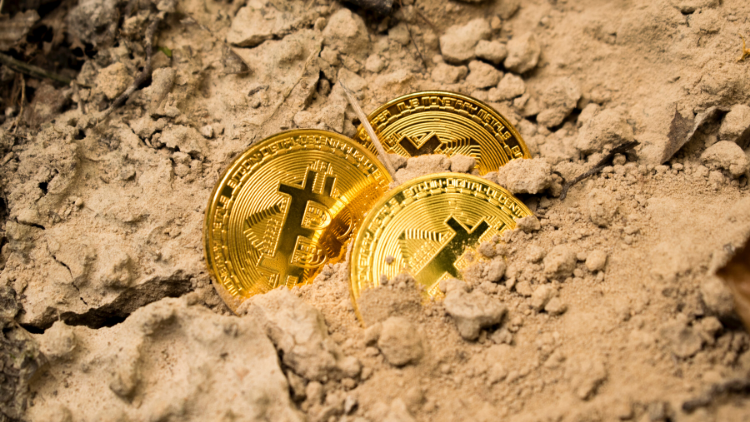
 Blockchain5 years ago
Blockchain5 years ago1.5 Times More Bitcoin is purchased by Grayscale Than Daily Mined Coins






